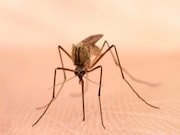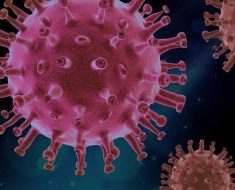MRNA VS. CONVENTIONAL VACCINES

Meet our new Chief Patient Officer, Dr. Dara Richardson-Heron

Working Together to Empower Women

Pfizer Women’s Resource Group

Universal vs. Single Payer Healthcare

The Pfizer-BioNTech COVID-19 vaccine has not been approved or licensed by the U.S. Food and Drug Administration (FDA), but has been authorized for emergency use by FDA under an Emergency Use Authorization (EUA) to prevent Coronavirus Disease 2019 (COVID-19) for use in individuals 16 years of age and older. The emergency use of this product is only authorized for the duration of the declaration that circumstances exist justifying the authorization of emergency use of the medical product under Section 564(b)(1) of the FD&C Act unless the declaration is terminated or authorization revoked sooner. Please see EUA Fact Sheet at www.cvdvaccine.com.
The U.S. FDA authorization of the Pfizer-BioNTech COVID-19 vaccine for emergency use is a significant step forward in our fight against this pandemic. As we begin to distribute our vaccine, here are some key facts and answers to common questions.
The Pfizer BioNTech COVID-19 vaccine is a messenger RNA (mRNA) vaccine that has both synthetic, or chemically produced, components and enzymatically produced components from naturally occurring substances such as proteins. The vaccine does not contain any live virus. Its inactive ingredients include potassium chloride, monobasic potassium, phosphate, sodium chloride, dibasic sodium phosphate dihydrate, and sucrose, as well as small amounts of other ingredients.[i] For more information, please visit cvdvaccine.com.
No, mRNA is a transient carrier of information that does not integrate into human DNA.[ii],[iii],[iv],[v]
Unlike a traditional vaccine that uses inactivated, dead, or portions of actual virus to spur an immune response, mRNA delivers a message to your body’s cells via a lipid nanoparticle envelope that instructs the cells to generate the spike protein found on the surface of a coronavirus that initiates infection.[vi],[vii] Instructing cells to generate the spike protein spurs an immune response, including generation of antibodies specific to the SARS-CoV-2 spike protein.
There are no data to suggest that the Pfizer-BioNTech COVID-19 vaccine causes infertility. It has been incorrectly suggested that COVID-19 vaccines will cause infertility because of a very short amino acid sequence in the spike protein of SARS-CoV-2 that is partly shared with a protein in the placenta called syncytin-1. From a scientific perspective, the differences between the two sequences are quite significant, making it very unlikely our vaccine could generate a response that would harm the placenta.[viii],[ix]
In line with CDC recommendations, we did not test our vaccine in people with a history of severe adverse or allergic reactions to a vaccine or a vaccine ingredient. Overall, there were no safety signals of concern identified in our clinical trials, meaning there was no signal of any serious allergic reaction.[i]
Severe allergic reactions have been reported following the Pfizer-BioNTech COVID-19 Vaccine during mass vaccination outside of clinical trials. Pfizer is monitoring and reviewing all reports of severe allergic reaction in coordination with health authorities. The prescribing information has a clear warning/precaution that appropriate medical treatment and supervision should always be readily available in case of a rare anaphylactic event following the administration of the vaccine.[ii] You can also find the latest guidance from the CDC here.
No. Pfizer and BioNTech’s COVID-19 vaccine is an mRNA vaccine, which does not use the live virus but rather a small portion of the viral sequence of the SARS-CoV-2 virus to instruct the body to produce the spike protein displayed on the surface of the virus. That spike protein then generates an immune response to the virus to potentially prevent infection. The vaccine does not allow the SARS-CoV-2 virus to replicate and it cannot cause any known illness.[x] No vaccine can cause a patient to develop the disease against which they were vaccinated.[xi]
Potential side effects of the Pfizer-BioNTech COVID-19 vaccine include injection site pain, fatigue, headache, muscle pain, chills, joint pain, fever, injection site swelling, injection site redness, nausea, malaise, and lymphadenopathy (enlargement of the lymph nodes).[xii]
We will track participants in our phase 3 clinical trial for the next two years following their second dose, in order to document the long-term effectiveness and safety of the vaccine.[xiii]
Our trial is closely monitored by Pfizer and an outside, independent group of experts called a Data Monitoring Committee, or DMC. Trial investigators also monitor participants’ health, and participants in the trial attend regular planned follow-up visits as part of the trial. Pfizer and BioNTech will be conducting additional studies to determine how effective and safe the vaccine is in the real world and among specific risk groups such as healthcare workers and among nursing home residents. The safety of patients is and always will be our number one priority.[xiv]
We recognize that developing a potential vaccine for the prevention of COVID-19 for broad use is critically important to combat the pandemic. In line with standard research practice, pregnant women were not enrolled in our trial, so available data on the Pfizer-BioNTech COVID-19 vaccine administered to pregnant women are limited.
However, a recent study in JAMA Network Open compared the outcomes of pregnancies in women that have / have not had SARS-CoV-2 infection, which showed that SARS-CoV-2 infection during pregnancy was not associated with adverse pregnancy outcomes.[xv]
We will evaluate the vaccine in pregnant women in a study starting in Q1 2021, once developmental and reproductive toxicity studies are complete. People who are pregnant or breastfeeding should discuss their vaccination options with their individual health care provider.
We currently have about 1000 participants in the 12-15-year-old age group enrolled in our trial. This controlled approach was agreed to with the FDA to allow for initial safety assessment in a small group. We plan to evaluate and assess these participants after their second dose prior to conducting further enrollment in this age group. Enrollment for 16-17-year old participants will continue as planned and we will share data in due course over the next few months.[xvi]
Bell’s palsy is a condition that affects the nerves controlling facial muscles and can occur after a viral infection. It is typically temporary and resolves in a few weeks.[xvii] The observed frequency of reported Bell’s palsy in the vaccine group is consistent with the expected background rate in the general population, and there is no indication of a causal relationship at this time. Pfizer and BioNTech together with FDA will continue to monitor for cases of Bell’s palsy as the vaccine is given to larger populations.
[i]Pfizer-BioNTech COVID-19 Vaccine (U.S. Food and Drug Administration 2020)
[ii]Schlake (RNA Biology 2012)
[iii]Sahin (Nature Reviews Drug Discovery 2014)
[iv]Karikó (Molecular Therapy 2019)
[v]Karikó (Immunity 2005)
[vi] Reichmuth (Ther Deliv 2016)
[vii] Midoux (Expert Review of Vaccines 2015)
[viii]Placenta: How it works, what’s normal (Mayo Clinic 2020)
[ix]Vaccine Considerations for People who are Pregnant or Breastfeeding (Centers for Disease Control and Prevent 2020)
[i] Polack (The New England Journal of Medicine 2020)
[ii]Pfizer-BioNTech COVID-19 Vaccine EUA Fact Sheet For Recipients and Caregivers (U.S. Food and Drug Administration 2020)
[x] Maruggi (Molecular Therapy 2019)
[xi]Vaccines and Preventable Diseases (Centers for Disease Control and Prevention 2012)
[xii]Pfizer-BioNTech COVID-19 Vaccine EUA Fact Sheet For Recipients and Caregivers (U.S. Food and Drug Administration 2020)
[xiii]C4591001 Clinical Protocol: A Phase 1/2/3 Study to Evaluate the Safety, Tolerability, Immunogenicity, and Efficacy of RNA Vaccine Candidates Against COVID-19 in Health Individuals (Pfizer 2020)
[xiv]C4591001 Clinical Protocol: A Phase 1/2/3 Study to Evaluate the Safety, Tolerability, Immunogenicity, and Efficacy of RNA Vaccine Candidates Against COVID-19 in Health Individuals (Pfizer 2020)
[xvi] Polack (The New England Journal of Medicine 2020)
[xvii]Bell’s Palsy Fact Sheet (National Institute of Neurological Disorders and Stroke 2020)
Source: Read Full Article





